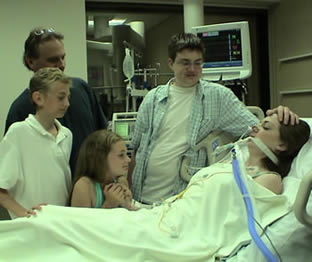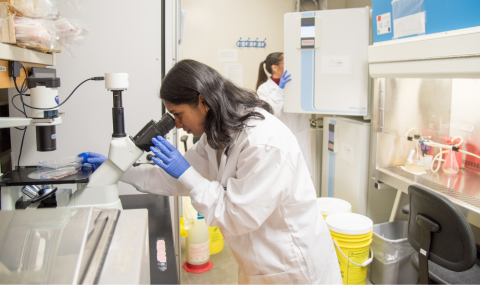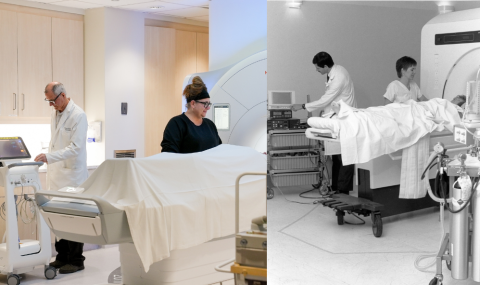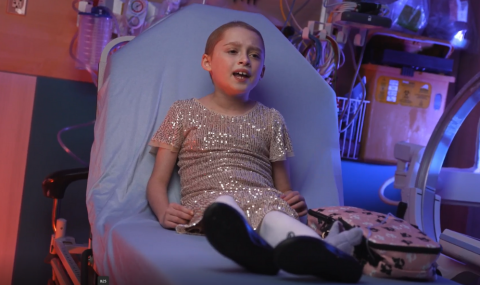Children may respond to a critical illness by showing a wide range of behaviors. Each experience is interpreted by how it affects the child's own unique needs. Children are often more distressed by the absence of a parent who is visiting at the hospital than of the actual illness. Changes that alter their normal routines, patterns and interactions can make children anxious or insecure.
Children may display their confusion or fears by reverting backwards in their development. They may begin wetting the bed, sucking their thumb or waking up at night. Children may become unusually "clingy" or tearful, withdrawn or distant, or may become less cooperative. For school age children, they may experience difficulty getting along with their friends or begin to display disobedience.
Encourage children to talk about their feelings, at a level that is appropriate for their age. Parents or close family members should try to make time each day to be with the child. If the patient is the child's mother or father, the healthy parent may be too overwhelmed to support the child's needs. Other close relatives can play an important role by maintaining routines and structure and giving the child extra attention. Let the child know that Mommy or Daddy feels sad or upset while reassuring the child that the parent is not angry with the child. This can help children realize that it is okay to have a number of different feelings.
Children may find it hard to talk about the situation or may be too young to express their feelings with words. Children may be able to act out their feelings when they play....dolls, stuffed animals, puppets or action figures can help a child to communicate their emotions. The age of a child will affect the way that they interpret and respond to the situation.
Try to keep as much consistency in a child's normal routines as possible. Children will need a lot of reassurance to let them know they will continue to be cared for by people who love them, no matter what happens. They also need to be reassured that the illness is not their fault.




